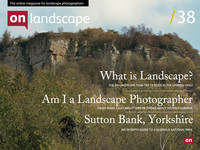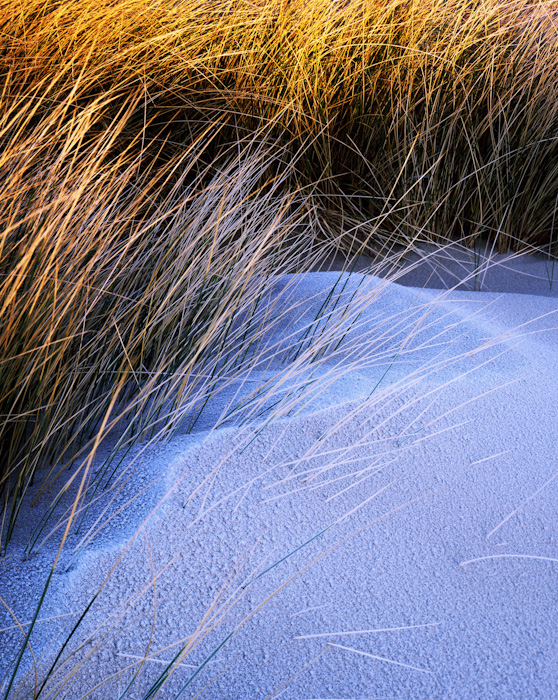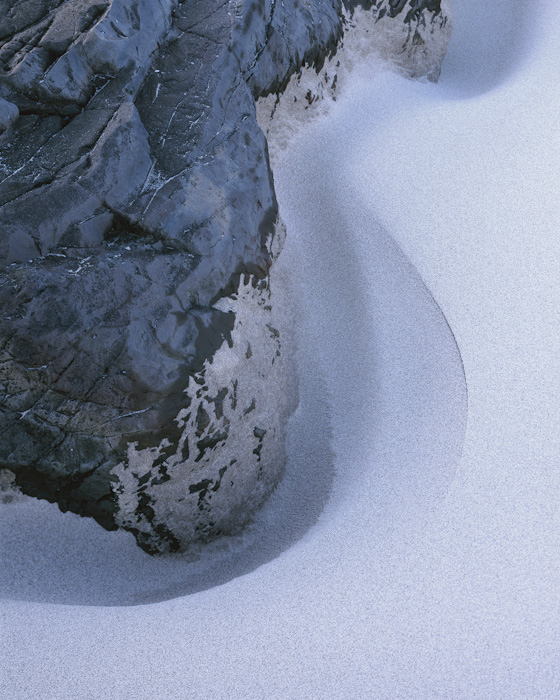Featured photographer

Tim Parkin
Amateur Photographer who plays with big cameras and film when in between digital photographs.
This issues featured photographer hails from Birmingham and works as an architectural, environmental and studio photographer but transforms like a celluloid batman into a landscape photographer when the urge becomes too strong to resist (oops - flowery language filter failure!). Take it away Paul Arthur!
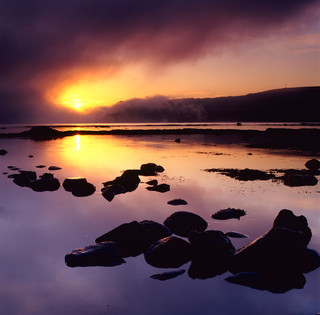 In most photographers’ lives there are 'epiphanic’ moments where things become clear, or new directions are formed. What were your two main moments and how did they change your photography?
In most photographers’ lives there are 'epiphanic’ moments where things become clear, or new directions are formed. What were your two main moments and how did they change your photography?
That's a difficult one. Hindsight is actually a hindrance in answering that question, especially as I seem to have four or five epiphanies a year when I discover some new method for doing something, a little trick to make my life easier, or some new style that I think looks great and that I'd like to add to my repertoire. There are two moments that do stand out though: the moment I purchased my first digital SLR, and the moment I discovered film.
My photographic journey started a good 20 years before I bought my first DSLR, with a cheap, plastic, point and shoot 35mm camera. If you saw the pictures I took back then, you might hope that they were an artistic statement, that I was rebelling against the norms and the oppressive establishment that demands images to be in focus, correctly exposed and where people's heads are in view. Sadly, that wasn't the case. I was just rubbish. My honeymoon was the 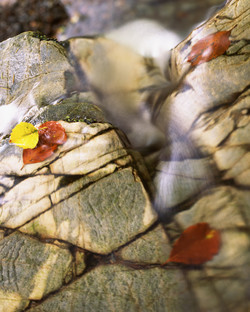 start of the run of changes that lead me to where I am today. I had by this time graduated from a cheap, plastic 35mm camera to a cheap, plastic digital camera and I couldn't wait to see the beautiful masterpieces I was going to create to remind me of this fabulous island paradise. Once again, I demonstrated my incredible ability to produce disappointing, out of focus, poorly exposed images. Enough was enough, and since I'd always been aware that my parents’ photographs that they took on SLRs were much better than mine, I went out and bought a DSLR. Surely that was all I needed to make great pictures, right?
start of the run of changes that lead me to where I am today. I had by this time graduated from a cheap, plastic 35mm camera to a cheap, plastic digital camera and I couldn't wait to see the beautiful masterpieces I was going to create to remind me of this fabulous island paradise. Once again, I demonstrated my incredible ability to produce disappointing, out of focus, poorly exposed images. Enough was enough, and since I'd always been aware that my parents’ photographs that they took on SLRs were much better than mine, I went out and bought a DSLR. Surely that was all I needed to make great pictures, right?
Of course you all know the answer to that one, but the change to the DSLR gave me a level of control that hadn't been possible up to that time, gave me a way of seeing the results of my tinkering instantly, and since I'd spent a good few hundred quid on it, I was going to make the best I could of it. In putting my money where my mouth was, I had finally committed to making good images, rather than just clicking away and hoping that the camera could come up with something decent.
I was hooked from that moment on, and it was only three years from then that I packed in my job in finance and started working full time as a photographer.
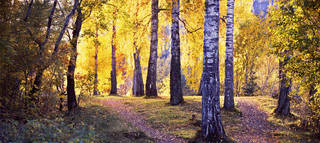 The second big epiphany was the discovery of film, and the eventual progression to Large Format. Like my purchase of a DSLR, using film made such a big difference to my photography because it required a proper commitment. Up to that point my landscape photography had been derivative, virtual copies of what we might now call "the classics". I can often be found in pubs complaining about people who spend all their time producing images identical to a hundred others from the same locations, and I think what really annoys me about it is that I spent such a long time doing exactly the same thing. Moving to film meant that suddenly making an image cost money, and so I shouldn't just waste it on just anything, I should make it count. The move to large format further cemented that feeling, as now it would cost me at least £5 for every picture. I think that's what made me move away from the weather-dependent glory shots and look around at my surroundings more to see what else there was to photograph, other than the obvious.
The second big epiphany was the discovery of film, and the eventual progression to Large Format. Like my purchase of a DSLR, using film made such a big difference to my photography because it required a proper commitment. Up to that point my landscape photography had been derivative, virtual copies of what we might now call "the classics". I can often be found in pubs complaining about people who spend all their time producing images identical to a hundred others from the same locations, and I think what really annoys me about it is that I spent such a long time doing exactly the same thing. Moving to film meant that suddenly making an image cost money, and so I shouldn't just waste it on just anything, I should make it count. The move to large format further cemented that feeling, as now it would cost me at least £5 for every picture. I think that's what made me move away from the weather-dependent glory shots and look around at my surroundings more to see what else there was to photograph, other than the obvious.
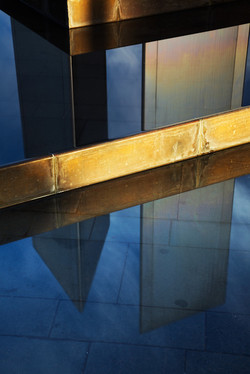 Tell me about why you love landscape photography? A little background on what your first passions were, what you studied and what job you ended up doing
Tell me about why you love landscape photography? A little background on what your first passions were, what you studied and what job you ended up doing
My childhood was one of travel and music, and to some extent, it's the same to this day. I remember as a child being very bored of travelling to cities with beautiful buildings, and couldn't stand the long drives through the mountains in the south of France that seemed to make up most of the holidays. Never one to hold back any complaints, I grumbled to my parents that it was all boring and rubbish. They replied: "You'll understand when you're older". Of course, they were right, and these days I make my living making images of the very things I initially found so uninspiring.
Music has always been a big part of my life: I spent years training as a brass player, eventually settling for the Tuba, and alongside that I found that I had an aptitude for singing. With a bit of cocky swagger I auditioned for the National Youth Choir, and much to their later regret, they let me in. I was of course very grateful as it allowed me properly to dedicate myself to my other passion - girls. It turned out ok in the end, as I met Helen, who I eventually married.
After school I studied economics at university and end up sleepwalking towards my thirties working in finance, never really getting anywhere and never really enjoying myself. It was 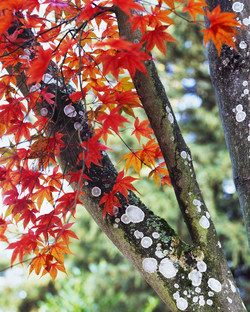 landscape photography and eventually other disciplines that slowly dragged me away from the dreary office job, and gave me a career that I love. Even though I spend a lot of times photographing things I wouldn't want to photograph if someone wasn't paying me, it doesn't really feel like work. Cool eh?
landscape photography and eventually other disciplines that slowly dragged me away from the dreary office job, and gave me a career that I love. Even though I spend a lot of times photographing things I wouldn't want to photograph if someone wasn't paying me, it doesn't really feel like work. Cool eh?
I love the act of making landscape images fundamentally as it is a way of getting away from the day job (if you can call it that in my case) and being in some of the most beautiful places on earth. I simply love an excuse to go to these places, and spend some quality time there. Having said that, I think making an image in a place makes me appreciate it even more, and coming home with a good image is far more rewarding and visceral than my memories alone. The very act of trying to distill a three dimensional 360 degree experience into a small rectangle means that I have to look that much harder at my surroundings, I can't just simply walk around thinking "Ooh, that's nice". Something I hear very often from non-photographers is "Ah, well, a camera can never do it justice, can it?" I'd actually argue the opposite. I can't think of a single picture I've taken in the last couple of years that I felt didn't do the actual scene justice, and in fact I think that a carefully crafted image is an enhancement of reality. I find visiting beautiful places and making them look better than they do in real life a tough hobby to beat.
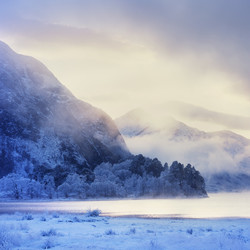 You’re another musical landscape photographer, tell us a little more about your music and whether you think it helps as inspiration for your photography.
You’re another musical landscape photographer, tell us a little more about your music and whether you think it helps as inspiration for your photography.
I wonder whether photography and music cross over so much because they are both great ways for the creative mind to express itself. I haven't ever had any skill at musical composition, preferring performance and the interpretation of the notes given to me on the page, and I feel that this is exactly what I do with photography. A good musical performer will take a set of notes and turn them into music, drawing the listener's attention to the important bits, and allowing the less important notes to be more impressionistic, if that makes sense. Isn't that exactly what we try to do with photography? As photographers, we will generally find an engaging subject and interpret its relationship with its surroundings in such a way that we show what the important bit is, but more than that, we try to impress a mood or a feeling on the image as a whole.
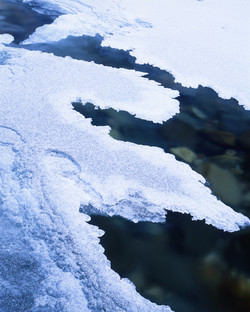 I wouldn't say that music itself influences my photography, but perhaps the work ethic is the same.
I wouldn't say that music itself influences my photography, but perhaps the work ethic is the same.
That said, I do find music helps me find inspiration in photography. My best images are taken when I'm not thinking about creating an image too much, but relying on instinct or on my subconscious to find something special. Listening to music is pretty much the only way I can turn my brain off just enough for the creative part of my brain to take over. Thankfully, my music taste isn't reflected in the type of images I make - I don't think anyone would want to look at my pictures for long if they knew what I was listening to when I made them!
You run a professional photography business - what sort of work do you normally undertake and how do you keep your passion for landscape alive?
I know very few professional photographers who work exclusively in one discipline. Those who do are real masters of their craft, and are in sufficient demand to choose to do no other work. For the rest of us, the key is diversity, almost mastering a variety of work in order to keep ourselves busy and the bills paid. I'm lucky though that my work falls almost exclusively into two categories: architectural photography and portrait photography. Living in a big city clearly has a lot to do with the 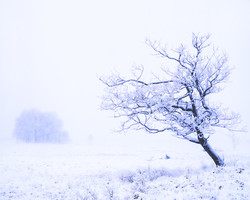 genre in which I work. If I lived in the Highlands, I couldn't do what I do as there is no local demand for it, and there is a similar lack of demand for landscape photography in the big cities. I am able to keep a passion for landscape photography going precisely because nobody will pay me to do it.
genre in which I work. If I lived in the Highlands, I couldn't do what I do as there is no local demand for it, and there is a similar lack of demand for landscape photography in the big cities. I am able to keep a passion for landscape photography going precisely because nobody will pay me to do it.
It's not that I don't really enjoy photographing people and buildings, but I don't wake up in the morning thinking "Ooh, I'd really like to photograph a warehouse today" unless I'm late on the mortgage. I do however wake up wanting to drive to the peak district and wander around for a couple of hours, or get away for a few days to Northumberland or Scotland. The grass is always greener, as they say, but I'm lucky enough to enjoy what I do so much that I'm very happy to keep landscape photography just for me, and have no desire to make a living from it at the moment.
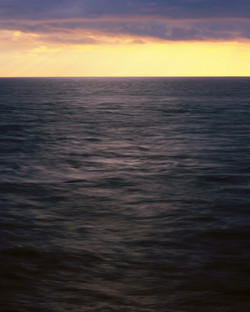 Could you tell us a little about the cameras and lenses you typically take on a trip and how they affect your photography.
Could you tell us a little about the cameras and lenses you typically take on a trip and how they affect your photography.
The important thing to note initially is that I do 99% of all my commercial work on digital cameras, and that 99% of my personal work is done on film cameras. Keeping landscape photography as hobby means that I'm far more interested in the crafting of an image and producing something tactile. It's not about getting the finished image as quickly and cheaply as possible, as it is in my commercial work, but it is instead about making an image I can fall in love with. For me, only film can do that.
I have an Ebony 45SU, a pretty rare large format camera except amongst us landscape photographers, where it seems almost to be the camera of choice. The asymmetric movements on the back make focusing almost instant, and I now seldom spend more than a minute on focusing an image. It's also pretty light and is a good all rounder in that it will cope with most types of image from a super wide landscape to quite a close detail. Also, as it is made of wood and titanium, making an image is a very tactile process that I find more rewarding than using my SLRs. I have six large format lenses, ranging from a 45mm up to a 360mm. I will usually carry the longer five of those with me everywhere I go, leaving the 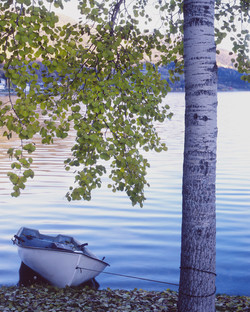 45mm at home most of the time, because it's far too wide to be useful except in the city. There's a lot to get to grips with when you start out in Large Format photography, and as result it inevitably slows you down. Add in the lack of zoom lenses, and you can end up in a bit of a muddle. These days, I've pretty much got the process of making an image sorted so that I can be quick when I need to be. And who needs zoom lenses? Once I've gotten myself in the right place, I carry enough lenses to cover most situations anyway. The only drawback in the weight - but I'm hardcore, so that's part of the fun.
45mm at home most of the time, because it's far too wide to be useful except in the city. There's a lot to get to grips with when you start out in Large Format photography, and as result it inevitably slows you down. Add in the lack of zoom lenses, and you can end up in a bit of a muddle. These days, I've pretty much got the process of making an image sorted so that I can be quick when I need to be. And who needs zoom lenses? Once I've gotten myself in the right place, I carry enough lenses to cover most situations anyway. The only drawback in the weight - but I'm hardcore, so that's part of the fun.
I also carry with me a Panasonic LX5 as a sketch tool, and this might be replaced with a Panasonic GX1 in the near future. It's very useful to see what you're likely to end up with without getting the "bad boy" out, and occasionally I've ended up getting images with it that just weren't possible on the Ebony. It's a very useful tool, but the images just don't have the wow factor that I'm looking for.
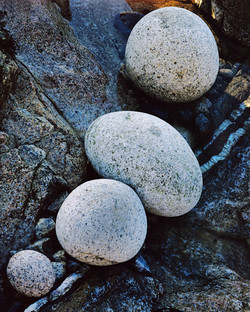 What sort of post processing do you undertake on your pictures? Give me an idea of your workflow.
What sort of post processing do you undertake on your pictures? Give me an idea of your workflow.
This is going to be a very short section. I think I struggle with inspiration a little when it comes to post production. If I like a transparency once I have processed it, then I'll scan it on to the computer so I can send it to print or put it up on the website. The only post production I really do is to correct scanning mistakes and make the digital file look as close to the transparency as I can manage. I've often watched the videos on this website of Joe Cornish processing his images and those of others, and am very jealous of his ability to judge what changes will improve an image. It's something I'm working on and will continue to work on, but perhaps as my photography matures, so will my vision in the digital darkroom. Perhaps unsurprisingly, I have exactly the same problem in the wet darkroom. I have recently converted my attic into a darkroom, and I can't tell you how cool it is for me, but to some extent if I don't have the goods in the raw negative, I'm a bit stuffed. If anyone wants to write a book on interpreting images out of the camera, put my name down for a copy.
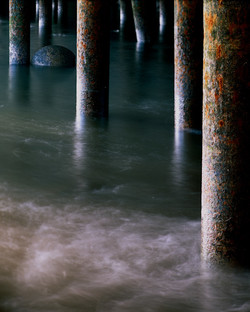 Do you get many of your pictures printed and, if at all, where/how do you get them printed?
Do you get many of your pictures printed and, if at all, where/how do you get them printed?
Virtually all of my commercial work is for print, but it is printed commercially, so I don't have a part in the process. As a result my printing knowledge is non-existent. It's an unfortunate casualty of my area of the industry. As there isn't a good business case for me buying a large format printer, I don't have any way of printing over A4. It's a real shame as I'd love to print my own colour work, but I just don't need to print enough. When I do need prints I'll send them off to a lab, and my choice depends on the medium I need. The only change to this has been the attic darkroom, where I can make black and white prints up to 20"x16". I haven't made anything that big yet, and it'll be a long while until I do as I've still got so much to learn about wet printing. The ability to make an image in camera, process my own film, and them create my own prints, albeit small ones, is so rewarding that it's what is driving my personal photography forward at the moment.
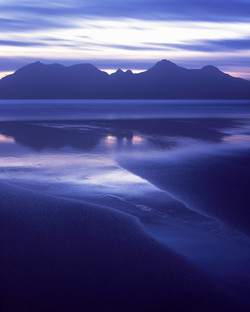 Tell me about the photographers that inspire you most. What books stimulated your interest in photography and who drove you forward, directly or indirectly, as you developed?
Tell me about the photographers that inspire you most. What books stimulated your interest in photography and who drove you forward, directly or indirectly, as you developed?
Joe Cornish has clearly inspired a whole generation of landscape photographers in this country, and I of course would count myself among them. David Ward has also been instrumental in me developing a different way of looking at the world. I wish that I could talk about photography as eloquently as they do, but photography is quite simple for me - it's all about a distilling the wider world down to something that I find beautiful. I have a shelf of books that are full of beautiful pictures and very insightful words, but I'm afraid that so far, what has really inspired me are the pictures, and the way they make me want to be there with the photographer. For that reason, I'd have to say that the books of Michael Kenna are the landscape books that have inspired me most. I haven't explored that genre at all, because I don't think I'd be able to do it, and I feel perhaps a bit intimidated by the level that he has achieved, and don't want him to make me look bad! For me though, photography isn't simply about landscape, and there's so much to be learnt from photographers of different disciplines. My photographic heroes are Julius Shulman and more recently Iwan Baan, both architectural photographers who define their era in architectural photography as well as Annie Leibovitz. I have grown up in the age of the celebrity, and Annie's celebrity images have captivated me throughout my life like no other.
Tell me what your favourite two or three photographs are and a little bit about them.
This image was taken in my first week with my Large Format camera, and it's one of the few of my own images that I have up on the wall at home. It was a special time for me as I met some good friends that week, got to work with large format film for the first time and also expanded my repertoire away from the static vistas that I had taken before to more intimate views. I just wish I'd been a bit better at focusing the thing back then!
Screaming cliche, I know. When a photograph speaks to me, it draws me in and makes me imagine what it was like to be there. I know it's easier if you actually were there at the time, but this image just grabs me around the face, splashes me with sea water and forces me to remember. It's not a special image in any sense other than I can't look at it without being there in my mind.
I once joked to Tim Parkin that lots of his images had zig zags in them, and he would have been quite right if he had said that lots of my images have single swirls or 'S' shapes. I find my eye drawn to them, and since they appear in all sorts of places, whether in snow, water or sand, they're not all that hard to find. I love this image because of how weird it is and how peaceful it makes me feel until I remember how I had to kneel down and protect the camera from the howling wind during the exposure!
If you were told you couldn’t do anything photography or music related for a week, what would you end up doing (i.e. Do you have a hobby other than photography..)
I'm a PADI Divemaster, so I would probably choose to go somewhere hot and spend the week scuba diving. I tried underwater photography at one stage, and found it too fussy, complicated and not to mention, expensive. Now I just dive to relax and to explore. I want to go back to the Maldives (the island paradise I failed to photograph before), but you wouldn't let me take any pictures, so perhaps I'd got out to Truk Lagoon in the Pacific, where 60 Japanese World War II ships lie at the bottom. Are you paying, Tim?
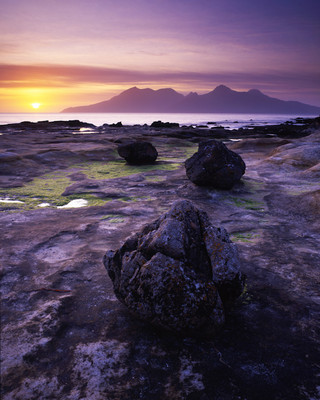 What sorts of things do you think might challenge you in the future or do you have any photographs or styles that you want to investigate? Where do you see your photography going in terms of subject and style?
What sorts of things do you think might challenge you in the future or do you have any photographs or styles that you want to investigate? Where do you see your photography going in terms of subject and style?
Well, I need to keep the darkroom ticking over for a while, I think, so I'm really keen to explore pinhole in particular, but black & white photography in general. I had tried a couple of times with pinhole, but never had much luck with it. I think the darkroom has given me the motivation to try some Kenna-esque images - it's not going to push any boundaries, but as I've said all along, I do landscape photography for me, so as long as I find the images interesting and engaging, I'm happy. One thing I am very keen on exploring is black and white architectural photography. There are a number of photographers around these days who use very long exposures and create quite striking monochrome images. I managed to break my Big Stopper in half on my first day of using it, so I won't be doing that, but I'm keen to explore what can be done without it.
Who do you think we should feature as our next photographer?
You've already covered Paul Mitchell, who I admire very much, but one person who has been missing from the featured photographer slot is you, Tim. I think it’s about time that you tell us some more about your photography and how you came to do what you do.
Thanks Paul! You can see more of Paul's work at his website http://www.paularthur.net

